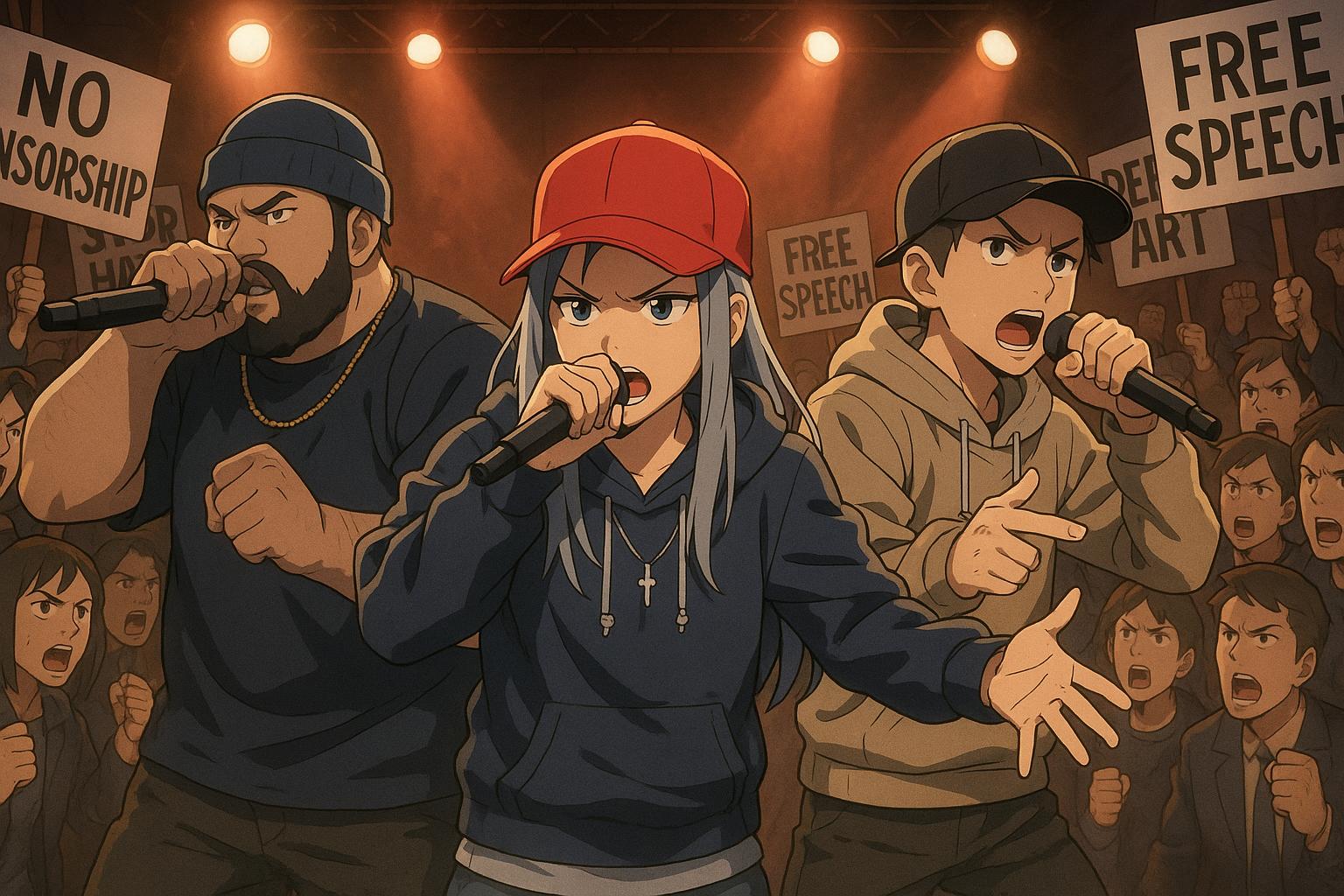The intersection of politics and music has always been a minefield, especially when artistic expression crosses into contentious territory. This tension has been starkly illustrated by Kneecap, a Belfast-based Irish hip-hop trio whose recent performances have sparked intense debate around free speech, artistic liberty, and the responsibilities of public figures. Following their controversial appearances at Coachella, where they displayed slogans like "Fuck Israel. Free Palestine," they have found themselves at the heart of a storm that poses critical questions about protest and the grave implications of inflammatory comments.
The outrage escalated after a November 2023 performance where a band member reportedly declared, "The only good Tory is a dead Tory. Kill your local MP." Such rhetoric has drawn sharp rebuke from political leaders, including First Minister John Swinney, who condemned the remarks as “completely and utterly unacceptable.” Swinney's stance illustrates a broader concern regarding how public discourse is increasingly defined by inflammatory rhetoric, as we witness the detrimental effects of political extremism and division.
Following this backlash, the trio issued a public apology to the families of murdered politicians Jo Cox and David Amess, recognising the gravity of their comments while claiming that their words had been “exploited and weaponised.” This response underscores the minefield artists navigate between critique and dangerous rhetoric, especially when political climates grow increasingly hostile.
In the midst of growing calls for Kneecap to be disinvited from future performances, an alternative perspective emerged during a Glasgow City Council meeting, led by Scottish Green councillor Jon Molyneux. He attempted to draw a sympathetic link between the backlash against Kneecap and their outspoken support for Palestine. Molyneux’s assertion that attempts to silence dissenting voices reflect a broader societal issue exemplifies a trend where criticism, especially of politically charged topics, directly invites backlash rather than dialogue.
SNP leader Susan Aitken echoed this viewpoint but acknowledged that outrage towards Kneecap's comments was warranted. However, she suggested that such inflammatory remarks should not lead to unilateral bans on artistic expression. Yet, this raises the uncomfortable question: should inflammatory rhetoric be tolerated under the guise of art, especially when it undermines public discourse and incites division?
Labour councillor Bill Butler countered that artistic freedom must not be interpreted as a pass to incite violence. He stressed that Kneecap’s statements had crossed into threatening territory, pushing the boundaries of acceptable discourse and illustrating the delicate balance required in any form of expression—artistic or otherwise.
As British counterterrorism police continue their investigations into the band, the wider implications of free speech come to the forefront. Kneecap, in their blend of irony and activism, embodies a pressing cultural discourse concerning the limits of civil discourse in an age of anger. Their experience reflects a growing dissatisfaction with the current political landscape and the failure of leaders to foster constructive dialogue, especially following the recent Labour government's rise to power. This fallout signals a disheartening trend where raw emotional expression overshadows thoughtful discussion, inviting all to engage critically with the evolving nature of public discourse.
Ultimately, Kneecap’s saga serves as a stark reminder of the contemporary struggles artists face when engaging with political themes, and highlights the consequences of brash expressions in a polarized society. Recognising the potential fallout from their audacious remarks, it becomes increasingly clear that the role of artistic voices—particularly those challenging dominant narratives—has never been more critical. In an era defined by the contradictions of expression and repression, it is imperative that we rally behind those who strive to speak truth to power, while also demanding accountability for the words they utter.
Source: Noah Wire Services
